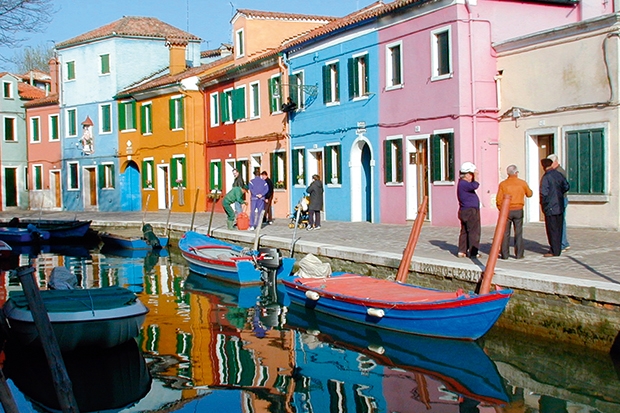I arrived in Venice believing it would reek of sewage. It didn’t. The walk into the centre went through cobbled alleys packed with loud Americans in sandals and Italian ladies tottering in kitten heels. But it was when crossing the Rialto bridge that I first felt as though I was truly in Venice, with tacky gold gondola models for sale at extortionate prices, and tourists jostling for prime photo spots. How else are you supposed to know you’re on holiday?
The canals are wonderfully chaotic; smaller boats have to dart out of the way of the Vaporettos as perilously overcrowded gondolas bob in their wakes. Gondoliers nap in the afternoon shade, pretending not to see the half a dozen tourists who turn up hoping to squeeze in to one boat and make their guide earn his money.
The waterbus service is far more glamorous than a 257 from Walthamstow Central but is just as crowded and sweaty, especially in the summer sun. It’s easy to let the fight for a seat distract you from the turquoise water just outside the window. As one historical monument drifts out of view another quickly takes its place: it seems as if every stretch of land is home to a crumbling cathedral.
I couldn’t help but ponder the impracticality of Venice. Nipping to the shops involves clambering into a wooden boat and the buildings look tired and worn from the water constantly lapping against them. Our gondolier sweetly told us in his thick Italian accent that the damage was caused by ‘salt-water corruption’.
The outer islands of Venice have a much calmer feel. Yes, Saint Mark’s Square is impressive but the tour groups are difficult to dodge while holding a rapidly melting gelato. The islands of Burano and Murano, famous for lace and glass respectively, are the better bet for a quiet lunch and cappuccino.








Comments
Join the debate for just £1 a month
Be part of the conversation with other Spectator readers by getting your first three months for £3.
UNLOCK ACCESS Just £1 a monthAlready a subscriber? Log in